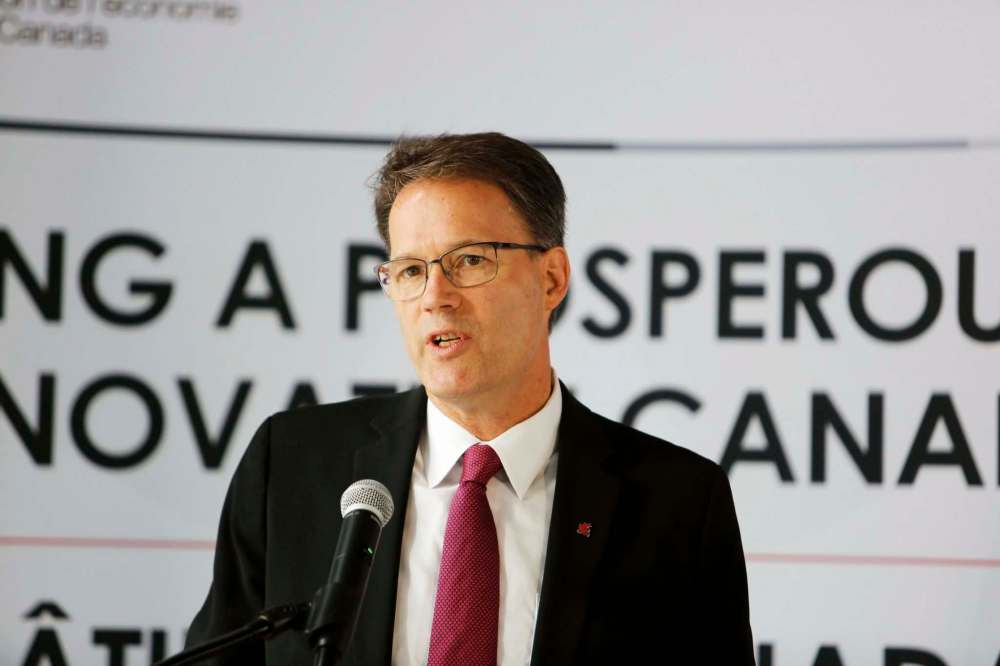RRC board should come clean about president’s exit
Read this article for free:
or
Already have an account? Log in here »
To continue reading, please subscribe:
Monthly Digital Subscription
$0 for the first 4 weeks*
- Enjoy unlimited reading on winnipegfreepress.com
- Read the E-Edition, our digital replica newspaper
- Access News Break, our award-winning app
- Play interactive puzzles
*No charge for 4 weeks then price increases to the regular rate of $19.00 plus GST every four weeks. Offer available to new and qualified returning subscribers only. Cancel any time.
Monthly Digital Subscription
$4.75/week*
- Enjoy unlimited reading on winnipegfreepress.com
- Read the E-Edition, our digital replica newspaper
- Access News Break, our award-winning app
- Play interactive puzzles
*Billed as $19 plus GST every four weeks. Cancel any time.
To continue reading, please subscribe:
Add Free Press access to your Brandon Sun subscription for only an additional
$1 for the first 4 weeks*
*Your next subscription payment will increase by $1.00 and you will be charged $16.99 plus GST for four weeks. After four weeks, your payment will increase to $23.99 plus GST every four weeks.
Read unlimited articles for free today:
or
Already have an account? Log in here »
Hey there, time traveller!
This article was published 30/07/2019 (2324 days ago), so information in it may no longer be current.
It’s a routine requirement on college exams — “show your work” — and it should apply to a rather confounding college-related question.
RRC to replace president next year

Posted:
From July 29: The board of Red River College won’t renew president and CEO Paul Vogt’s contract when it expires next year, saying it “wants to go in a different direction.” Critics of the decision say they fear it’s politically motivated and one called it “the worst personnel decision at a Canadian college, maybe ever.”
A report this week that Red River College president and CEO Paul Vogt’s contract will not be renewed when it expires next year has left most people with even a passing familiarity with his achievements at the post-secondary institution wondering what’s behind the RRC board’s decision.
When asked by the Free Press to explain the decision to terminate Mr. Vogt’s employment at the end of his current contract, RRC board chairman Loren Cisyk issued an email stating, “The board is looking to go in a different direction.” He did not elaborate on what that direction might be, or on what problems the board has had with RRC’s current direction under Mr. Vogt’s leadership.
Given that RRC is a taxpayer-funded institution, this dismissive explanation from the college board’s chairman is woefully inadequate. If the decision is based on performance, the board should declare that is the reason for the termination — which could be done without betraying any of the confidentiality concerns that are routinely attached to personnel matters.
It’s worth noting that in providing the “different direction” rationale via email, Mr. Cisyk thanked Mr. Vogt for his work at RRC and enthused that “Great things are happening at the college!”
If on-the-job performance is not shown to have been the motivator for the board’s decision, one is left only with the prospect that politics, rather than professional considerations, is at the root of RRC’s surprising move.

In an earlier chapter of his career, Mr. Vogt was closely affiliated with the New Democratic Party, having served for six years as an adviser to premier Gary Doer and, subsequently, eight years as the politically appointed clerk of the executive council. His appointment as RRC’s president and CEO came while the NDP was in power, at the behest of a college board largely populated by NDP appointees.
The Pallister government has, as all new governments do, cleaned house to replace NDP-affiliated individuals from boards and institutions, and a logical conclusion can be drawn that Mr. Vogt is just the latest target of that effort.
What makes his delayed departure noteworthy, however, is that the decision comes despite RRC having been granted a fairly glowing review by a Toronto-based consulting company hired by the Progressive Conservative government to conduct a thorough operational examination of Manitoba’s colleges. A report by Higher Education Strategy Associates, released last year, gave RRC high marks for governance and financial accountability.
When informed of the RRC board’s decision, the report’s author, Alex Usher, expressed concern that Mr. Vogt’s ouster is political in nature and described it as “the worst personnel decision at a Canadian college, maybe ever.”
Red flags abound. Questions demand answers. The calculations leading to the bottom line should be provided.
In removing Mr. Vogt without adequate explanation, the current Tory-appointed RRC board risks tarnishing the brand of the institution. The president is chiefly responsible for fundraising, intergovernmental relations and maintaining close ties with the business community, all of which are essential for a vocational school.
Red flags abound. Questions demand answers. The calculations leading to the bottom line should be provided.
If Mr. Vogt’s removal is related to professional performance, the taxpayers who fund RRC have a right to know. And if vindictive political meddling was a factor in the board’s decision, voters in September’s provincial election should be given a chance to factor that into their ballot-box decisions.
The “different direction” in which RRC’s board should be heading is toward transparency and accountability.












